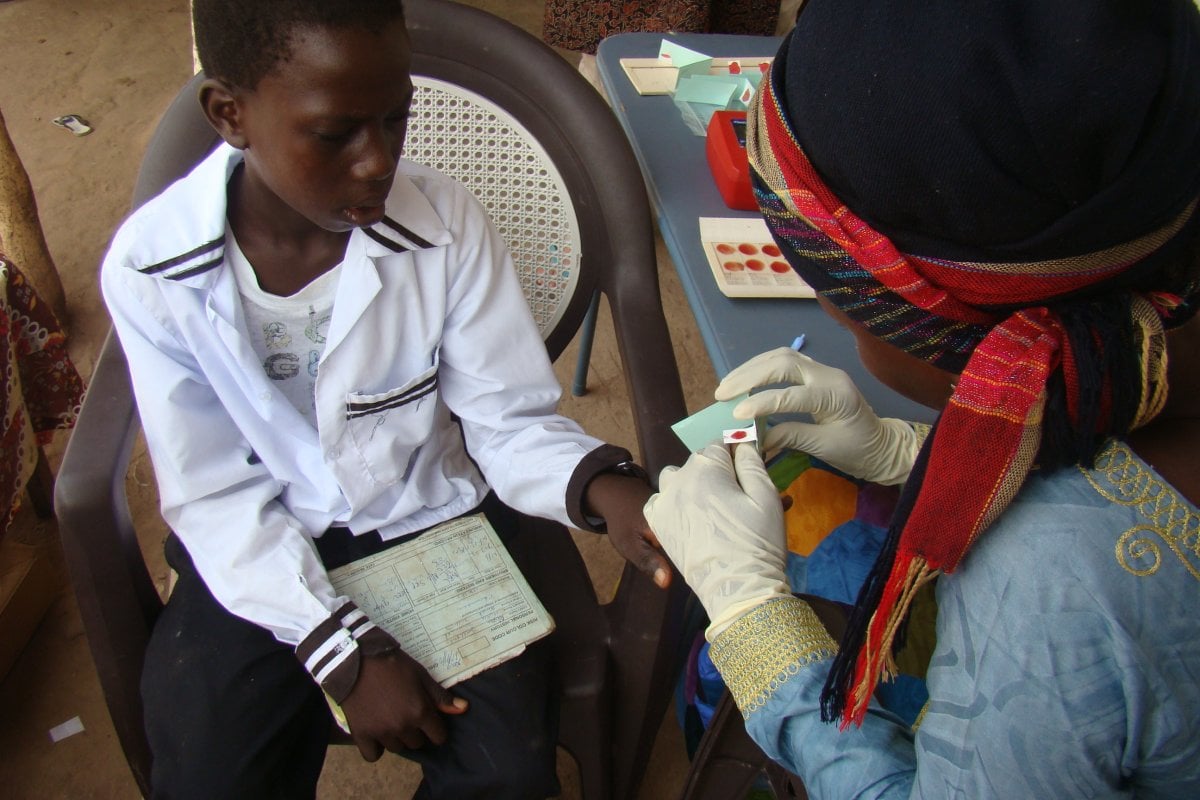Gambiaj.com – (BANJUL, The Gambia) – A new portable malaria test that can detect infections in under 45 minutes, including those with no symptoms, has shown promising results in communities in The Gambia and Burkina Faso, raising hopes for sharper disease surveillance and control in the region.
The study, published in Nature Communications, involved researchers from the Medical Research Council Unit The Gambia, the London School of Hygiene and Tropical Medicine, and Burkina Faso’s Institut de Recherche en Sciences de la Santé.
The consortium designed the test specifically for use in remote, resource-limited settings where access to laboratories is scarce.
Despite decades of progress against malaria, The Gambia, like many countries in sub-Saharan Africa, continues to struggle with transmission fueled by individuals who are infected but show no symptoms.
These “silent carriers” do not seek treatment and are often missed by standard rapid tests or microscopy. Yet, they continue transmitting the disease to others.
According to the World Health Organization, Africa still accounts for 94% of global malaria cases and 95% of malaria-related deaths.
A Breakthrough for Field-Level Detection
The new test, called Dragonfly, combines a magnetic DNA extraction system known as SmartLid with a colorimetric isothermal amplification platform based on loop-mediated isothermal amplification (LAMP).
Its performance was compared with three reference methods: qPCR (the gold standard), expert optical microscopy, and rapid antigen tests detecting the histidine-rich protein 2.
The device achieved a detection limit of 0.6 parasite per microliter, and the full process — from sample collection to result—took less than 45 minutes.
Researchers tested 672 finger-prick blood samples from rural villages in The Gambia and Burkina Faso. Dragonfly detected malaria with over 95% sensitivity, significantly outperforming rapid diagnostic tests and even expert microscopy.
Crucially, the entire process, from collecting a blood sample to reading the result, takes less than 45 minutes. A colour change from pink to yellow indicates a positive result, meaning results can be interpreted on-site without advanced laboratory equipment or electricity.
Designed for Remote Communities
Unlike many existing molecular malaria tests, which require machines costing tens of thousands of dollars, Dragonfly runs on a small 20-watt portable heat block that can be powered by battery or solar panels. This makes it particularly useful for hard-to-reach Gambian communities, especially during the rainy season when access becomes limited.
Researchers say the test could strengthen active surveillance, particularly in regions where malaria cases have declined and further reduction depends on identifying hidden infections.
Potential to Support Gambia’s Elimination Strategy
The Gambia has made significant gains in reducing malaria prevalence over the past decade. However, public health officials have noted that progress has slowed, in part because of the difficulty in identifying and treating low-level infections.
Experts say that deploying this tool during mass testing campaigns could accelerate the country’s path toward malaria elimination.
“This is exactly the kind of innovation needed to find the infections we currently miss,” a senior public health researcher familiar with malaria programs in The Gambia said.
Next Steps: Local Production and Wider Use
The research team plans to conduct further field trials, including testing the device’s performance in hotter temperatures and training community health workers to use it.
There are also plans to transfer manufacturing to African facilities, a move that could lower costs and improve access for countries like The Gambia.
The technology has already been adapted for detecting other infectious diseases, including mpox and respiratory viruses, demonstrating potential value beyond malaria.
As Africa pushes towards digital health integration, researchers also intend to link Dragonfly results to cloud-based reporting systems, enabling real-time surveillance and faster responses to malaria hotspots.
For now, medical experts say the innovation offers renewed hope in the fight against one of The Gambia’s most persistent public health challenges.










